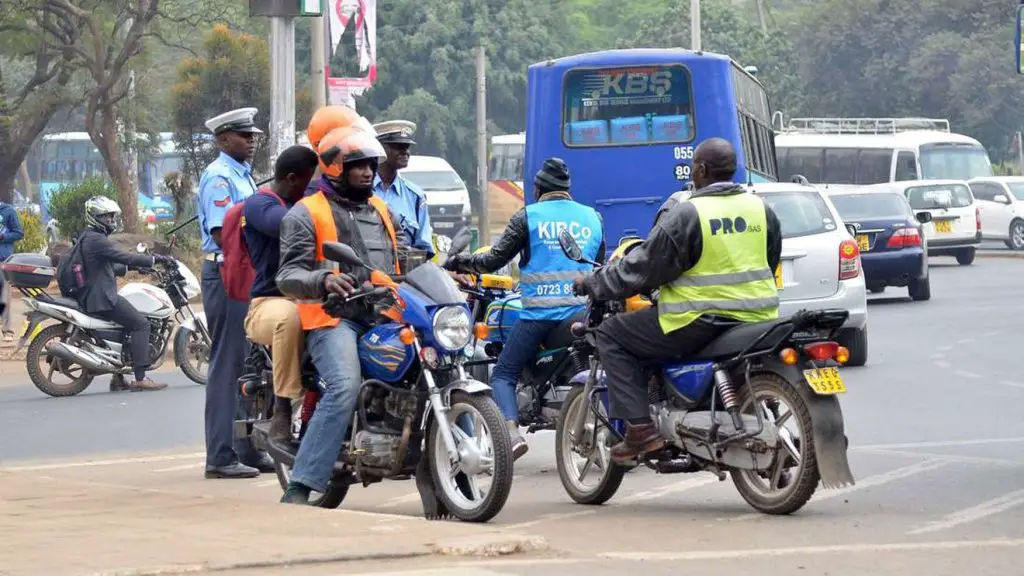- Kenya has about 2.4 million boda boda operators who ride 22 million daily trips making Ksh1.2 billion daily (US$100 million), making the sector crucial to the economy of the country
- By 2030, road traffic accidents will account for more deaths than AIDS in low- and middle-income countries
- Motorcycles have also been linked to crimes. Lax regulations have seen contract killers, drug peddlers, robbers, rapists, con artists, and petty thieves establish a home in the sector
Boda bodas in Kenya are as commonplace as the yellow taxis in New York City or any other American city, for that matter.
The boda boda industry in Kenya has created a lot of buzz this Month, attracting attention to the dynamics, dangers, and reforms required in the industry.
In context, Kenya has about 2.4 million boda boda operators who ride 22 million daily trips making Ksh1.2 billion daily (US$100 million), making the sector crucial to the economy of the country. Only 30 per cent of the riders have undergone training in a registered driving school, and 65 per cent are not insured.
Further statistics from the National Police Service indicate that 1,270 people died of motorcycle accidents in 2021; 1,136 people died in 2020; 728 in 2019 and 591 in 2018. In 2022 alone, 251 people have already died from boda boda-related accidents. Due to the worrying rising of death statistics, boda boda is an essential sector needing concrete reforms. The industry is run by youths, who contribute 76 per cent of the country’s population; Over 60 per cent of the riders are below 35 years.
Road traffic accidents constitute a significant health and development problem in Kenya. Boda bodas are silent killers, and they contribute to half of the road accidents in the country. Dedicated wards for boda boda victims are becoming a standard feature. One such hospital is the Mathare Korogocho Hospital.
The severity and delicateness of these injuries demand complicated and costly care. The fact that most boda boda riders are not insured makes the at-the-moment hospital bill payment very costly, driving many people into poverty. In every 5 Kenyans, 4 of them do not have medical insurance.
Doctors have had a workload of accidents that could have been avoidable. The government waiver of taxes and access to credit has made motorcycles affordable, allowing many untrained riders on the Kenyan roads.
Currently, Kenya has one of the world’s highest rates of road-related deaths, with 26.6 deaths per 100,000 people, which is likely only to increase as it is believed that by 2030, road traffic accidents will account for more deaths than AIDS in low- and middle-income countries.
Motorcycles have also been linked to crimes. Lax regulations have seen contract killers, drug peddlers, robbers, rapists, con artists, and petty thieves establish a home in the sector.
The Government of Kenya has suspended the violent police operation against all boda boda riders after the horrible Forest Road attack on the lady driver who was involved in an accident with a boda boda.
President Uhuru Kenyatta directed a security crackdown across the country to wipe out rogue motorcycle operators from the boda boda sector following the recent assault of a motorist along Wangari Maathai Road, Nairobi.
Read: Uber Rival Bolt raises $713mn in fresh funding
The President outlined that he had instructed the security apparatus in the country to clamp down on rogue boda boda cyclists and ensure criminals behind the atrocious act were brought to book.
President Uhuru Kenyatta, who spoke on March 8, also ordered a new registration of all boda boda operators in the country to restore order in the sector.
“We will re-register you (boda boda riders) all again, and we must make sure that we safeguard women. I have instructed the law enforcement officers to use instruments within the law to punish these perpetrators. There should never be a repeat of what we saw,” the President said.
The government of Kenya is determined to align the sector this time and has waived the ksh5,800 registration fee. Dedicated desks in all Huduma Centres across the country will be set up to expedite the registration process, with successful applicants being offered an intelligent riding license. The license will also be linked to the rider’s National Health Insurance Fund account to access medical services, especially in case of an accident.
Another solution to motorcycle accidents is the “Boda-bora initiative. This business model aims to leverage the problems of many unlicensed and uninsured motorcyclists and provide them with an online platform that registers, trains, insures them while providing them with decent work and maintaining economic growth.
President Kenyatta’s administration has also outlined that all boda boda operators must also join SACCOs, which will keep the register of all their members, thus helping in assigning operating zones, tracking movement and self-regulation.
Read: Ugandan parliament asked to ban boda bodas from Central Kampala
